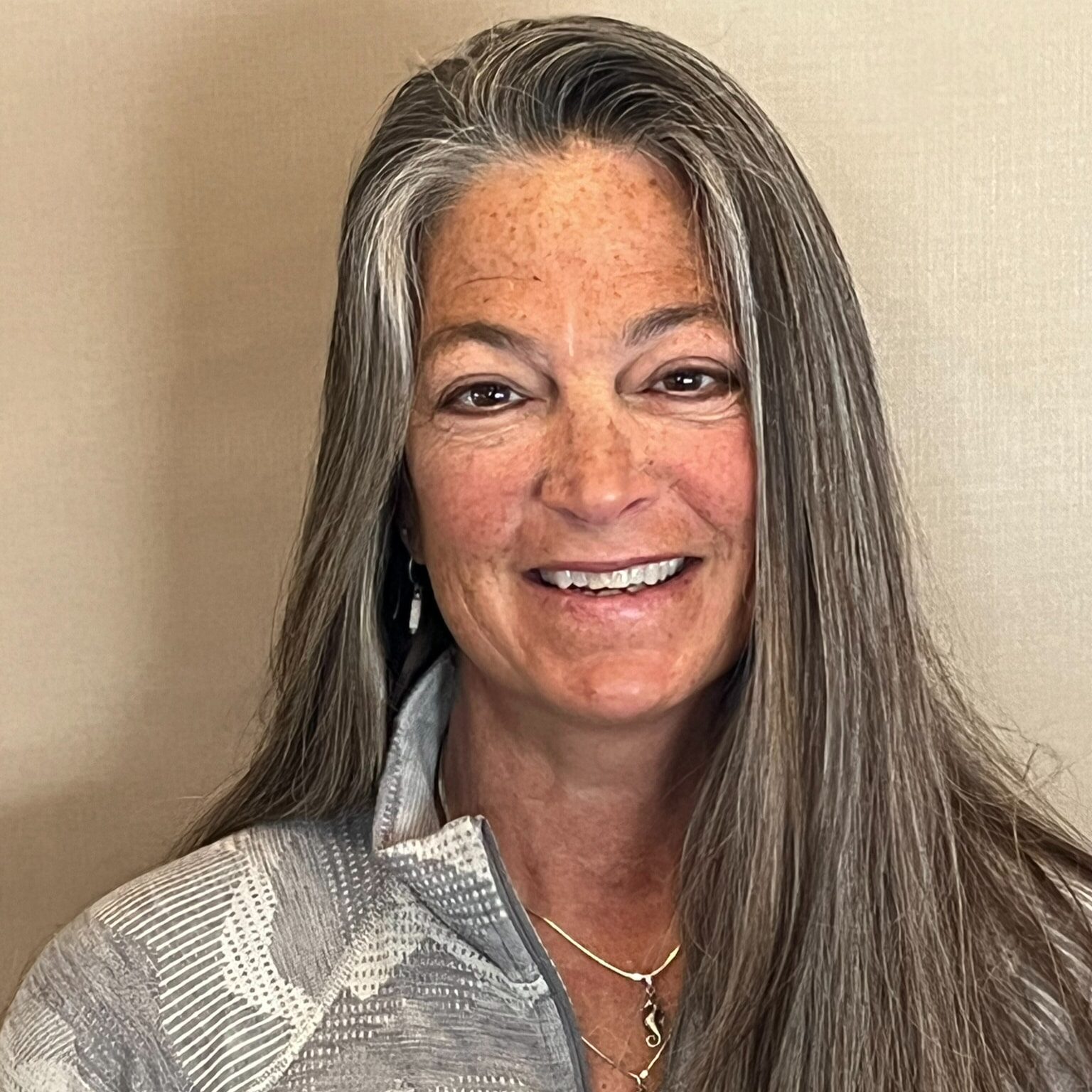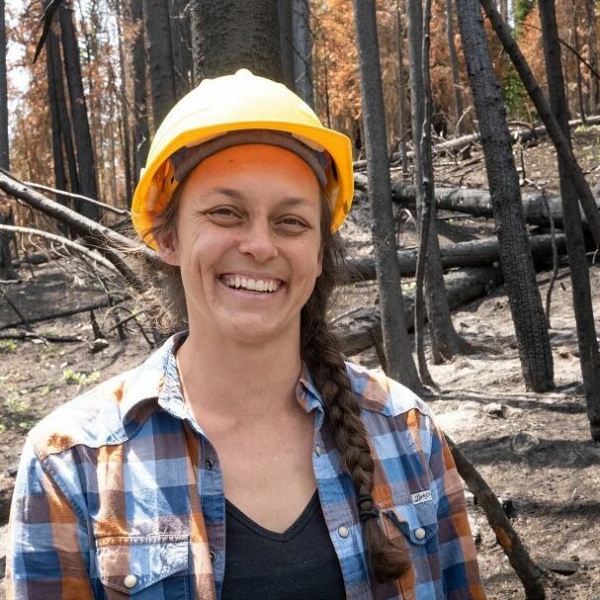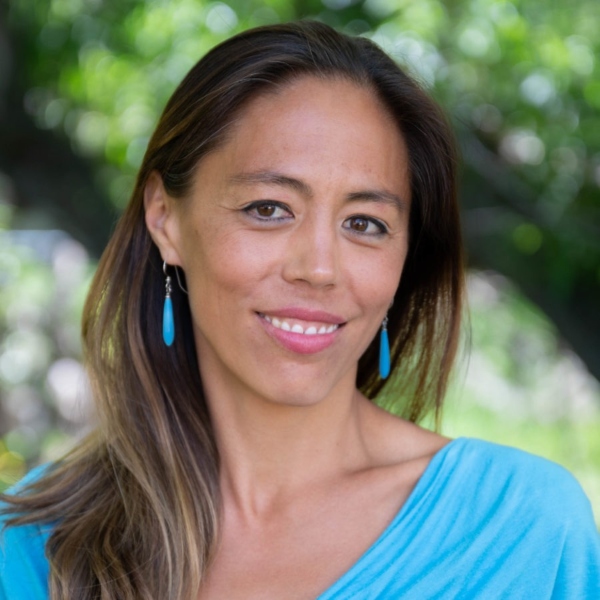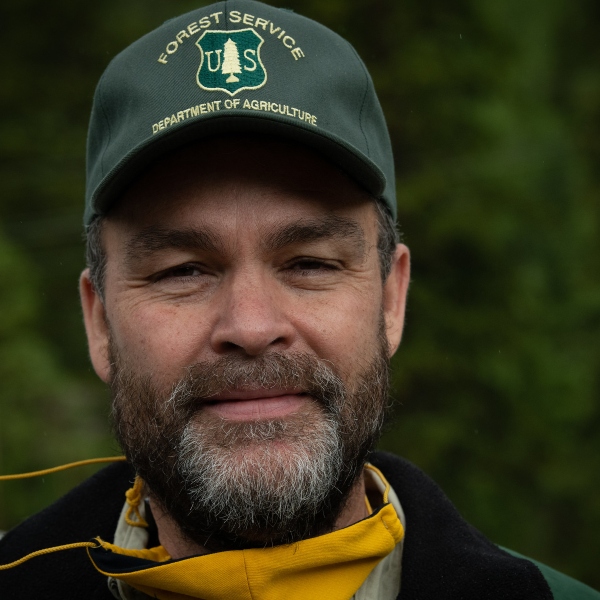Julie Knauf, Nurse, Bartender, and Outdoor Enthusiast
Camille Stevens-Rumann , Fire Ecology Faculty member and Assistant Director of the Colorado Forest Restoration Institute
Kimiko Barrett, Research and Policy Analyst, Headwaters Economics
Monte Williams, Forest Supervisor, US Forest Service
Julie Knauf

Julie Knauf moved to Grand County in September 1990 from Chicago, Illinois. She is a registered nurse and Pediatric Nurse Practitioner, as well as a part-time bartender and a manager/cook for a 3rd generation hunting outfitter in the fall. She married her loyal and caring husband, Paul Parker, in 2009. They have an active yellow lab named Jasper and a mouse-slaying cat named Catch’em. Together they have rafted multiple rivers, telemark skied many runs, and enjoy adventurous scuba diving vacations. Julie loves her extensive number of cross-country ski days with her pup. They currently live in a 5th wheel on the property they lost to the East Troublesome Fire, slowly regenerating with groves of shoulder-high aspens and an abundance of amazing wildflowers in spring and summer, as they work on their rebuilding process.
Camille Stevens-Rumann

Camille Stevens-Rumann is a Fire Ecology Faculty member and Assistant Director of the Colorado Forest Restoration Institute. She received her B.S. in biology and environmental studies from Brandeis University, her M.S. in forestry from Northern Arizona University and her Ph.D. in natural resources from the University of Idaho. Her research revolves around wildfires – how and why they burn, what we can do to manage and mitigate wildfire impacts through land management practices, how forests recover post-fire and what we can expect of forests in the changing climate.
Kimiko Barrett

Born and raised in Montana, Dr. Kimiko Barrett (Kimi) has a deep interest in rural landscapes and the people who live there. She has a natural aptitude for connecting and energizing people in the pursuit of community resilience and climate adaptation.
Kimi is a committed agent of change in how we live with inevitable wildfires. Drawing on the expertise within the broad networks she has built, she has led research of national significance on topical issues such as the true cost of wildfires, the cost of building wildfire-resistant homes, and measuring wildfire impacts through structure loss. Her work has changed the national wildfire narrative and shaped new strategies for engaging communities on wildfire resilience.
Kimi managed Headwaters Economics’ Community Planning Assistance for Wildfire program for six years. In that capacity she worked with firefighters, land use and planning staff, government agency personnel, and elected officials in more than 80 communities across the country, helping them devise community-driven solutions to reduce wildfire risk and increase community adaptation efforts. She was recently appointed, served, and led efforts as a member of the Federal Wildland Fire Mitigation and Management Commission.
Monte Williams

Monte Williams served as the Forest Supervisor for the Arapaho and Roosevelt National Forests and Pawnee National Grassland located in northern Colorado starting in 2015. In 2020 the Arapaho and Roosevelt National Forests had the two largest wildfires in Colorado history on its landscape- the Cameron Peak Fire and the East Troublesome Fire.
Williams’ background includes serving as a Legislative Affairs Specialist in the Forest Service headquarters in Washington D.C. and acting Chief of Staff for Arthur ‘Butch’ Blazer, USDA Deputy Under Secretary Natural Resources and Environment. His career includes District Ranger on Cherokee National Forest in Tennessee, and recreation, timber, silviculture and hydrologist positions in Utah, Idaho, and South Dakota.
Williams’ formal education is Watershed Management with a Bachelor of Science from Utah State University. He retired from his Forest Supervisor role in 2024.







